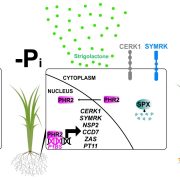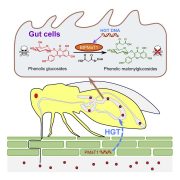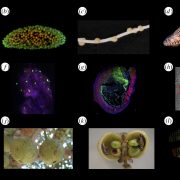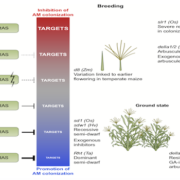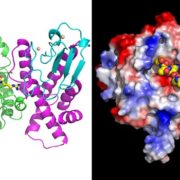An oomycete plant pathogen reprograms host pre-mRNA splicing to subvert immunity
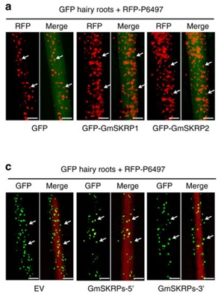 Phytopthora sojae poses a serious threat to soybean production world-wide. This oomycete pathogen has a wide arsenal of effector proteins, some of which have been functionally characterized for their virulence role. Huang et al. characterized and demonstrated the functional role of an avirulence effector PsAvr3c in reprogramming the host RNA-splicing process. PsAvr3c is an essential virulence factor that has a nuclear localization signal and shows an interaction with soybean GmSKRP1/2 proteins, the latter associating with plant spliceosome components. PsAvr3c stabilizes the GmSKRP proteins and, being negative regulators of plant immunity, their ectopic expression promotes pathogen colonization. RNA-seq analysis on GmSKRP1 and PsAvr3c overexpression lines indicates a significant alternation in splicing pre-mRNAs, including defense-related genes. Splicing ratios of selected genes show a good co-relation during wild-type and PsAvr3c effector mutant during soybean infections, confirming splicing events to be mediated by PsAvr3c. Hence, this work has shown elucidation of oomycete effectors targeting host pre-mRNA splicing to promote disease (Summary by Amey Redkar) Nat. Comms. 10.1038/s41467-017-02233-5.
Phytopthora sojae poses a serious threat to soybean production world-wide. This oomycete pathogen has a wide arsenal of effector proteins, some of which have been functionally characterized for their virulence role. Huang et al. characterized and demonstrated the functional role of an avirulence effector PsAvr3c in reprogramming the host RNA-splicing process. PsAvr3c is an essential virulence factor that has a nuclear localization signal and shows an interaction with soybean GmSKRP1/2 proteins, the latter associating with plant spliceosome components. PsAvr3c stabilizes the GmSKRP proteins and, being negative regulators of plant immunity, their ectopic expression promotes pathogen colonization. RNA-seq analysis on GmSKRP1 and PsAvr3c overexpression lines indicates a significant alternation in splicing pre-mRNAs, including defense-related genes. Splicing ratios of selected genes show a good co-relation during wild-type and PsAvr3c effector mutant during soybean infections, confirming splicing events to be mediated by PsAvr3c. Hence, this work has shown elucidation of oomycete effectors targeting host pre-mRNA splicing to promote disease (Summary by Amey Redkar) Nat. Comms. 10.1038/s41467-017-02233-5.


